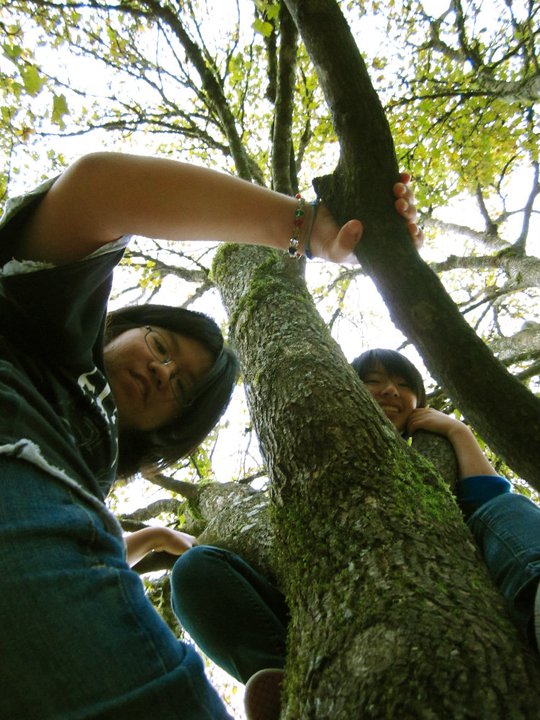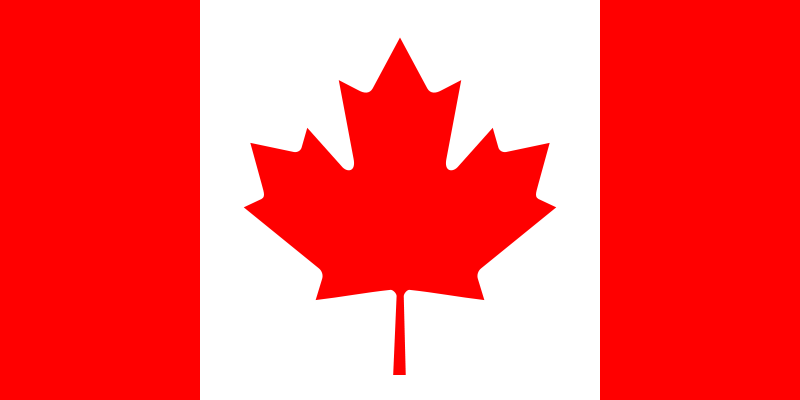Prompt: Write a short story (600 – 1000 words) that describes your sense of home; write about the values and the stories that you use to connect yourself to, and to identify your sense of home. (Dr. Erika Paterson, ENGL 470)
—
I liked this house.
Unlike the apartment we’d just checked out, this house was a little older, so there wasn’t that nauseating new paint smell that made me want to throw up. I don’t remember why, but I was so very happy in this house, even though it was much smaller than the only other one I remember: our house in Toronto, whre I was born.
The moment I got my shoes off I darted in and sat in front of the empty fireplace. Then I hopped up the stairs, singing a wordless tune I’d made up.
While I was doing this, Mom, Dad, and Grandma—my housemates—had a conversation with my aunt (a realtor) I’d later learn was very brief. “She looks so darn happy in this house,” Grandma said. “We should get this one.” And Mom and Dad agreed.
And so I came to reside on the traditional and unceded homeland of the Musqueam from the age of three. I attended elementary school, high school, and now university practically on the doorstep of this house.
 Between the hours of high school monotony and during the brief summer months, us teenagers took our bikes and explored campus’ nooks and crannies. D.Y. and I pretended to be Katniss Everdeen and challenged each other to scale various trees around the hood. J.C. took me to photogenic deserted beaches with still water, silence, and long waving fronds of grass. A.C. showed me where she’d found ostriches (yes, UBC keeps ostriches for…research?!) behind a badly-boarded fence at the back of a building development. We only had to peel back the boards to peer eye-to-eye with the birds.
Between the hours of high school monotony and during the brief summer months, us teenagers took our bikes and explored campus’ nooks and crannies. D.Y. and I pretended to be Katniss Everdeen and challenged each other to scale various trees around the hood. J.C. took me to photogenic deserted beaches with still water, silence, and long waving fronds of grass. A.C. showed me where she’d found ostriches (yes, UBC keeps ostriches for…research?!) behind a badly-boarded fence at the back of a building development. We only had to peel back the boards to peer eye-to-eye with the birds.
With those I lived with I went on different adventures. Picking up boatloads of groceries at the Chinatown-Stadium T&T, baking in the open concrete parking lot during the summers. Later, long drives down Marine Drive and across the bridge to Richmond, gathering items like gai lan, bok choy, and tilapia. If I was being good, bubble waffles at Parker Place.
My friends from school also spoke English at school and climbed trees/biked/explored beaches after. Then, they’d go home and go to different places, speak a different language—very likely an East Asian one, since many were Asian immigrants.
Paraphrasing conversations a year or so ago: I sit eating dinner with my parents in the dining room. The summer’s long evening sunlight filters through our tall windows, and outside birds and people alike chirp with energy. “Two more years,” my dad sighs, “until I get to retire.”
“Have you found any other places?” I ask my mom and dad.
“We were just saying the other day, picking you up at Joyce, that that neighbourhood seems convenient,” he says. “Then of course there’s Richmond. All our favourite shops close by. Of course, you’d have to account for the potential flooding.”
I roll my eyes. “You’re being paranoid, dad.” But wherever they ended up matters little to me. By the time they move I’ll have graduated and started my own life. These days when I go out I also vaguely look at Vancouver’s various neighbourhoods for yuppie-living-potential. I really like the West End and downtown, but of course that would be out of my price range. Maybe somewhere like Mount Pleasant or Strathcona, somewhere close to Main and my favourite cafes and record stores?
It’s funny. As a ten year-old I would dream of big detached houses with trees that could be transformed into treehouses. Now I look for compact places with minimal cleaning needs and judge on their proximity to artisanal coffee roasters.
“Remind me again,” I say, “what’s so complicated about living in UBC that makes us have to sell?”
“We don’t own the land, so we have to pay extra taxes.”
“Right. The Musqueam own it.”
“No, we lease the land from UBC. We pay an extra tax, along with the usual Vancouver property tax. That’s why it’s so expensive to live here.”
I didn’t understand the incredible privilege I had of living in such a beautiful neighbourhood, nor did I understand the true history behind it, until my later teen years. All I saw were trees to climb and memories to be made. During my high school years, when UBC started to get heavily developed, I looked on as, bit by bit, the forests I’d learned to love and know transformed into apartment blocks. It used to be that my neighbourhood was the only residential neighbourhood in UBC—all along Wesbrook Mall was forest. Now we had several neighbourhoods.
But did our home belong to us in the first place?
That’s a tricky question, but I’d like to think that as long as you’re free to roam the wooded trails and breathe the ocean breeze, you are home. And I hope the Musqueam, who have done that for thousands of years, will continue to do so for countless generations to come.
Works cited
Paterson, Erika. “Lesson 2:1.” ENGL 470A Canadian Studies: Canadian Literary Genres May 2015. The University of British Columbia Department of English, n.d. Web. 3 June 2015.
Todd, Douglas. “Mapping our ethnicity Part 2: China comes to Richmond.” The Vancouver Sun. Postmedia Network, 2 May 2012. Web. 4 June 2015.
“University Lands Press.” IndigenousFoundations.arts.ubc.ca. First Nations Studies Program at University of British Columbia, n.d. Web. 4 June 2015.
All photos belong to me.


Hey Charmaine!
Always love reading your blogs. I think it’s an interesting concept: home as possession or home as a feeling. I’m not sure about you, but I find that my family means home more than anything else. My mother, on the other hand, needs to feel home through our house. All of our décor has to be “homey”, “warm” and “cozy”, otherwise she wouldn’t feel at home. She can’t even sleep at night if she isn;t in her own bed at night.. Vacations get a little sleepless for her. Myself, on the other hand, can find comfort in the people that I’m surrounded by. I’ve lived in one of the junkiest apartments that UBC can offer, but because of my roommates and the memories that I’ve made at UBC, I still consider it home. While it isn’t my HOME-home (if you get what I’m saying) it’s my school-home; my second home. My “home away from home”. My roommates become my family, and to me this constitutes home. I have a key, a welcoming place to sleep and spend my free time, and a room to get away in whenever I need my solitude.
Cheers!
Hailey
Hi Hailey—
I agree with you that the idea of home is as much about the people as it is about the place, even though I didn’t touch too much on the people in my post. I think what matters is the people in your space, the people you share day-to-day experiences and activities with. For me, that was hanging out with my friends from school, a very easy thing to do because we all lived in the same area. Another thing was doing activities with my family, like buying food for our common home.
It’s awesome that you have a “home away from home.” Many students feel lonely in university, and as someone who doesn’t live with other students, I too can feel that sometimes. Again, thanks for stopping by!
Char
🙂